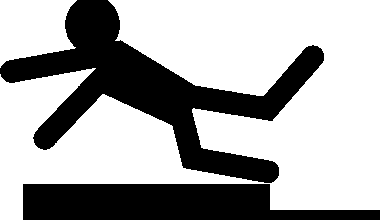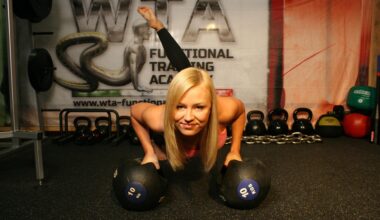Week 2 Upper Body Routine: Nutrition to Support Your Training
As you embark on your Week 2 Upper Body Routine, it’s essential to understand how nutrition plays a vital role in your training. Proper nutrition can enhance your performance, recovery, and overall physical growth, particularly during intensive focus periods. Focusing on macronutrients such as protein, carbohydrates, and healthy fats can lead to optimal results. Proteins serve as building blocks for muscles, facilitating their repair and growth after workouts. Carbohydrates provide you with the energy needed to perform effectively, especially during upper body routines that demand a lot of physical output. Healthy fats support hormone production and joint health, which are critical for any workout regimen. Implementing a balanced intake of these macronutrients can significantly improve your stamina, strength, and muscle development. Make sure you consume a good protein source post-workout, such as chicken, fish, or tofu to aid recovery. Pair that with complex carbs like quinoa or sweet potatoes to replenish your glycogen stores efficiently. Incorporating the right nutrition not only supports muscle gain but enhances your overall performance on your path to fitness. Stay diligent about your nutrition to maximize your training results.
Following nutritional standards is critical in ensuring success throughout your exercise journey, particularly with an intense upper body workout. It helps if you plan your meals to coincide with your training schedule, ensuring adequate pre and post-workout nutrition. Aim for a balanced pre-workout meal consisting of lean protein and complex carbs about one to two hours before your training. This will help prolong energy levels and enhance focus during the upper body workout. Post-workout, your body craves nutrients for recovery to build and repair the muscles worked upon. This is the perfect time to ingest protein alongside carbs to restore energy levels and support muscle repair. Various food options such as protein shakes, Greek yogurt with fruit, or sandwiches can easily fit into this category. Ensuring a colorful plate can provide a wide array of vitamins and minerals beneficial for recovery. Regular hydration is equally an essential part of your routine. Be mindful of your water intake to maintain optimum performance, with electrolyte-replenishing beverages post-intensive workouts. Diligence in your nutritional strategy will significantly enhance your upper body workout performance.
To further complement your upper body training, consider incorporating specific nutrients known to support muscle recovery and development. Amino acids, especially branched-chain amino acids (BCAAs), offer incredible benefits for muscle growth and regeneration. BCAAs reduce muscle soreness and fatigue during your workouts, allowing you to push your limits without overwhelming fatigue. They can be found in protein-rich foods such as chicken, eggs, and legumes. Vitamins and minerals like Vitamin C, Vitamin D, Magnesium, and Zinc are equally vital as they support energy metabolism and muscle function. Foods like oranges, leafy greens, nuts, and seeds are excellent sources. Omega-3 fatty acids, found in fatty fish, chia seeds, and flaxseeds, also play a role in reducing inflammation, leading to faster recovery times. In addition, working to include antioxidants in your diet can assist in reducing muscle oxidative stress during workouts. Foods rich in antioxidants, such as berries, dark chocolate, and green tea, can help in this regard. Don’t underestimate the impact of nutrients on your overall training effectiveness and muscle progression during this crucial stage.
Hydration and Timing for Optimal Performance
Understanding hydration’s vital role in supporting your upper body training can’t be overlooked. Proper hydration optimizes your performance and recovery processes. During intense workout sessions, your body loses water through sweat, leading to a potential drop in performance. To remedy this, ensure you’re well-hydrated before starting your workout. Consume water consistently throughout the day, and be sure to drink water during your workout. Aim for a good amount of fluids prior to and after your upper body training session, adjusting this depending on your individual needs and the workout duration. Timing can be crucial; make sure to drink during rest periods and after your sets to keep the muscles functioning at their best. While training, consider electrolyte drinks if your workout spans longer than an hour or is particularly grueling. Post-workout hydration is equally crucial; it helps restore lost fluids and supports nutrient absorption. You may consider beverages enriched with electrolytes or simply drink a balanced amount of water, ready to quench your thirst. Focus on maintaining consistent hydration particularly during your second week of rigorous upper body training.
Additionally, consider the timing of your meals and snacks in relation to your workouts. Pre-workout nutrition emphasizes consuming the right foods that provide sustained energy, while post-workout focuses on recovery and replenishment. Aim to have a pre-workout meal about one or two hours before your training. This meal should contain a blend of carbohydrates and protein to fuel your session effectively. After your upper body workout, there is a critical window where your body is most eager to absorb nutrients; this is often referred to as the “anabolic window.” Consuming a post-workout snack or meal within 30 minutes to two hours can significantly aid recovery and muscle growth. Quick, easy sources of recovery nutrition can include smoothies packed with protein powder, fruits, and vegetables. Protein bars or wraps can easily be consumed on the go. Consistent attention to meal timing will ensure that your body is always primed for optimal performance and recovery. Focusing on complementary nutrition practices will support muscle gains during the challenging second week of your program.
Finally, fostering healthy eating habits extends beyond just macronutrients and meal timing. It involves cultivating a nutrient-rich diet filled with a variety of foods that offer all essential vitamins and minerals. Emphasize whole, unprocessed foods as part of your daily intake to maximize your nutrients. Incorporate fruits, vegetables, whole grains, lean proteins, and healthy fats into your overall meal plan. Experiment with vibrant colors on your plate to ensure a range of nutrients; each color often represents different health benefits. This diversity in your diet can offer a holistic approach to your nutrition goals. Proper portion sizes and mindful eating further enhance these efforts. Taking your time to savor meals can assist in reducing overeating and promoting a balanced relationship with food. Measuring or estimating portion sizes may help you stay on track while minimizing waste. Establishing a healthy routine of having meals at regular intervals will also promote consistency. Following up your efforts with supportive nutritional habits, particularly during your challenging workout plan stages, will lead to sustainable results.
Conclusion: Sustaining Nutrition for Long-Term Success
In conclusion, enhancing your nutrition during the second week of your upper body routine is fundamental to achieving not only immediate results but also long-term fitness goals. Your journey doesn’t stop at workouts; nourishing your body requires a strategic approach to eating. As you integrate proper nutrition tailored to your workout plan, focus on understanding macronutrients, meal timing, hydration, and ongoing healthy eating habits. Don’t hesitate to experiment with various sources of protein and carbohydrates, finding what works best for your body and training intensity. Remember to adjust strategies according to how your body feels and performs, ensuring you remain in tune with its needs. Supporting your training with the right nutrition will elevate your overall enjoyment and satisfaction with the process. Strive for balance, indulge occasionally, and maintain focus on your fitness aspirations for lasting change. Looking ahead, commitment to healthy eating habits can also influence your workouts while establishing a strong foundation for future training ranges. Stay mindful of nutrition, and tackle each week with renewed energy and determination.
By maintaining a balanced nutrition approach as part of your weekly routine, you’ll empower yourself not just in achieving workout targets but also in sustaining a healthy lifestyle overall.


